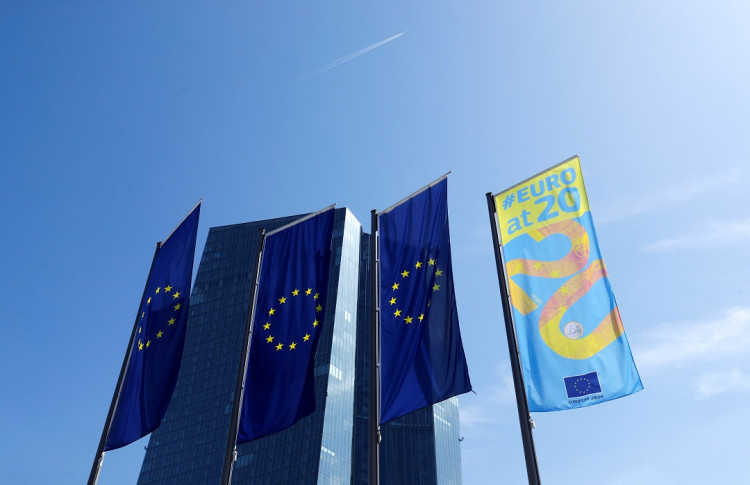The European Central Bank (ECB) opted to maintain its current interest rates in a unanimous decision on Thursday, following the landmark cut in June. The Governing Council cited ongoing domestic price pressures and elevated services inflation as primary reasons for this hold. The decision keeps the ECB's key interest rate at 3.75%, aligning with market expectations amidst concerns over persistent inflationary pressures, particularly from the labor market.
"Monetary policy is keeping financing conditions restrictive. At the same time, domestic price pressures are still high, services inflation is elevated, and headline inflation is likely to remain above the target well into next year," the ECB's Governing Council stated.
Eurozone headline inflation slightly dipped to 2.5% in June from 2.6% in May. However, the core inflation rate, which excludes volatile components such as energy and food, held steady at 2.9%, exceeding consensus forecasts. Analysts have suggested that the ECB will likely wait for more data on payrolls, economic growth, and productivity before making further monetary policy adjustments.
ECB President Christine Lagarde emphasized the central bank's commitment to a data-dependent approach. "Wages are still rising at an elevated rate, making up for the past period of high inflation. Higher nominal wages alongside weak productivity have added to unique labor cost growth, although it decelerated somewhat in the first quarter of this year," Lagarde said during a press conference.
Lagarde also noted that inflation levels are expected to fluctuate for the remainder of the year but should decline overall in the second half due to weaker labor costs, the impact of monetary policy, and the fading effect of price shocks. The ECB had previously trimmed rates in June, the first such cut since 2019, citing the inflation outlook and the strength of monetary policy transmission.
In the statement released on Thursday, the Governing Council reiterated that it is not committing to a particular rate path, although market pricing suggests expectations for two more 25 basis point cuts this year, in September and December, with a pause anticipated during the central bank's October meeting.
Lagarde confirmed that the July decision was unanimous, contrasting with June when Austrian central bank governor Robert Holzmann dissented. "What was equally unanimous was our determination to be data-dependent, decide meeting-by-meeting," Lagarde stated, adding that the September decision remains "wide open."
Market reactions to the ECB's announcement were relatively muted, with the euro trading slightly lower against the U.S. dollar and higher against the British pound. Stocks across Europe saw broad gains following the decision.
Kiran Ganesh, Chief Investment Officer at UBS Global Wealth Management, told CNBC's Silvia Amaro, "The ECB is still very much open to cutting interest rates in September, we think that's quite likely... we think now's the time to be shifting cash and locking in current interest rates before they come down."
Ganesh also suggested that the euro and the dollar might follow similar interest rate paths moving forward, recommending attention to currencies nearing the end of their rate-cutting cycles, such as Switzerland.
While the ECB commenced rate reductions ahead of the U.S. Federal Reserve, many investors now anticipate that the U.S. central bank will start cutting rates in September, with expectations for three rate reductions by January 2025. Switzerland, Sweden, and Canada have already cut rates this year, but sticky U.K. inflation data recently reduced market bets on an August rate cut from the Bank of England, boosting the British pound.
The ECB's recent statement indicates a continued trajectory towards a September rate cut. Mark Wall, chief European economist at Deutsche Bank Research, commented in a note, "Despite some recent inflation data being less friendly, the ECB has excused some as one-offs and others as absorbed in profit margins. The ECB is taking comfort from the trends and looking through the noise, consistent with being 'data dependent, not data point dependent.'"
Lagarde also emphasized potential risks to growth, citing a weaker world economy and escalating trade tensions as factors that could weigh on euro area growth. Investment indicators point to muted growth in 2024, with the eurozone economy likely growing at a slower pace in the second quarter compared to the first quarter's 0.3%.
The ECB's key concern remains domestic prices, particularly for services, which are showing stubborn persistence. Although wage pressures are expected to ease later this year, the overall economic environment remains relatively weak, with surveys indicating anaemic growth and easing fears that summer activity, particularly in tourism, will further fuel price pressures.






